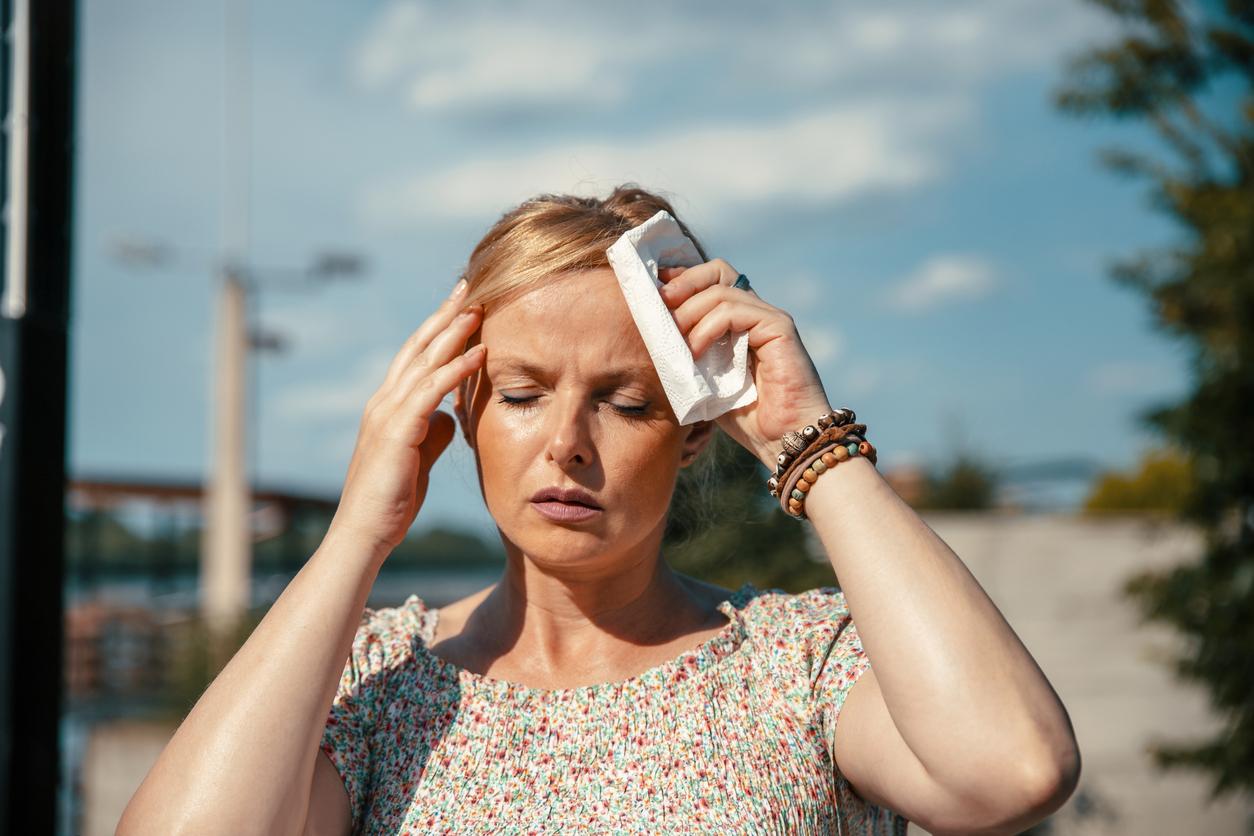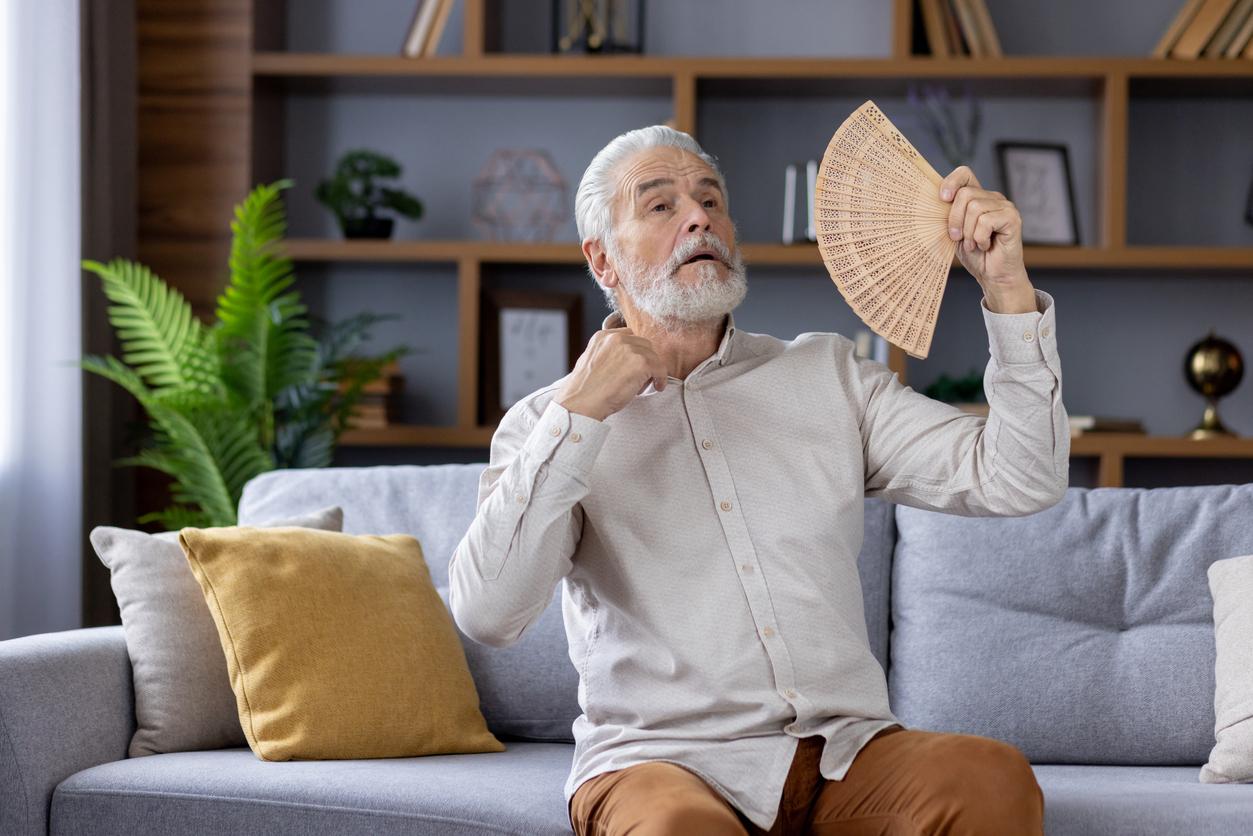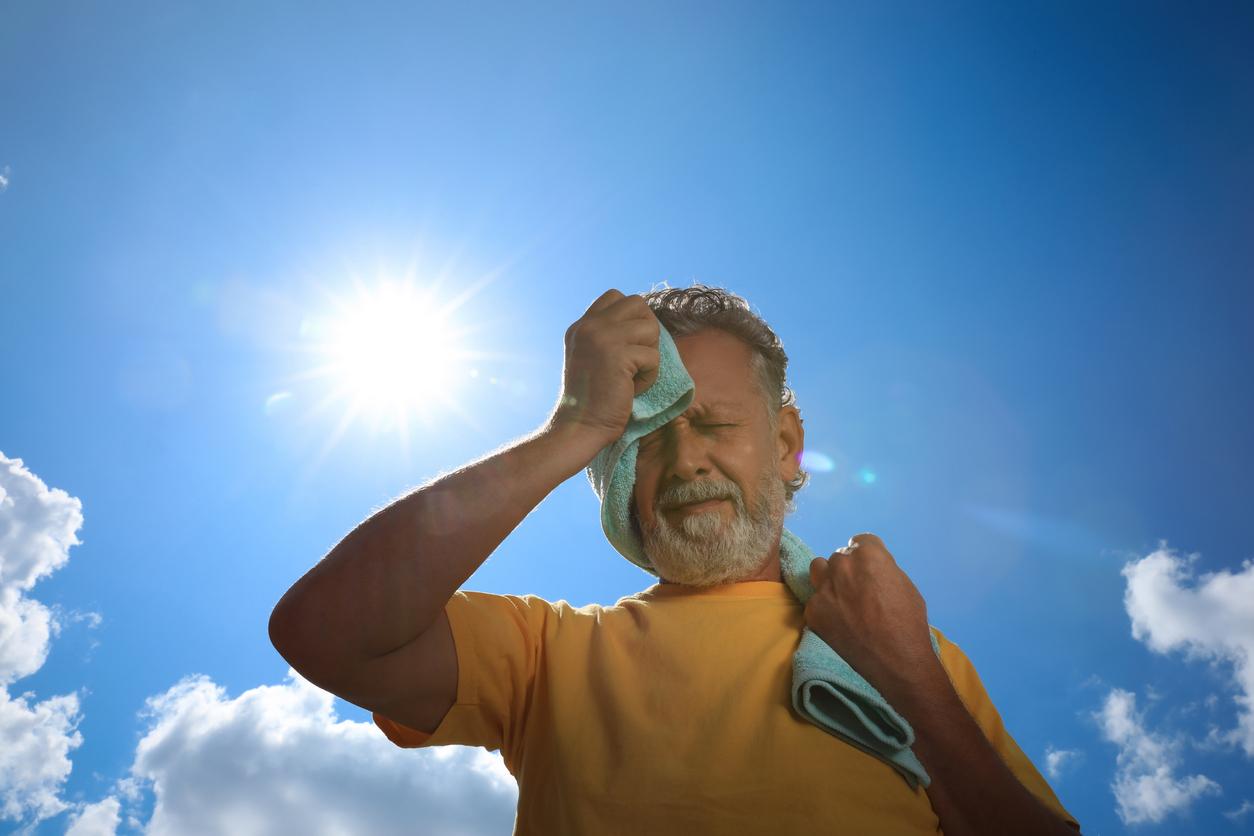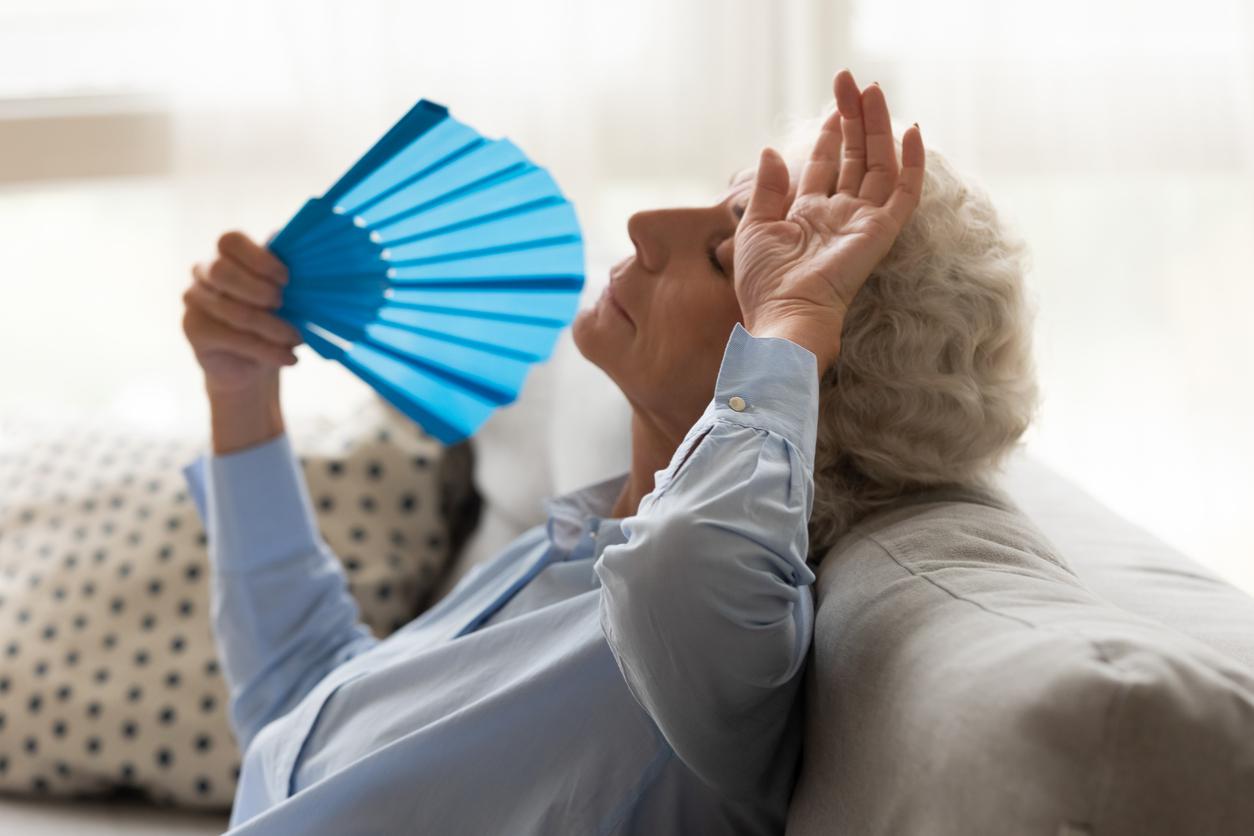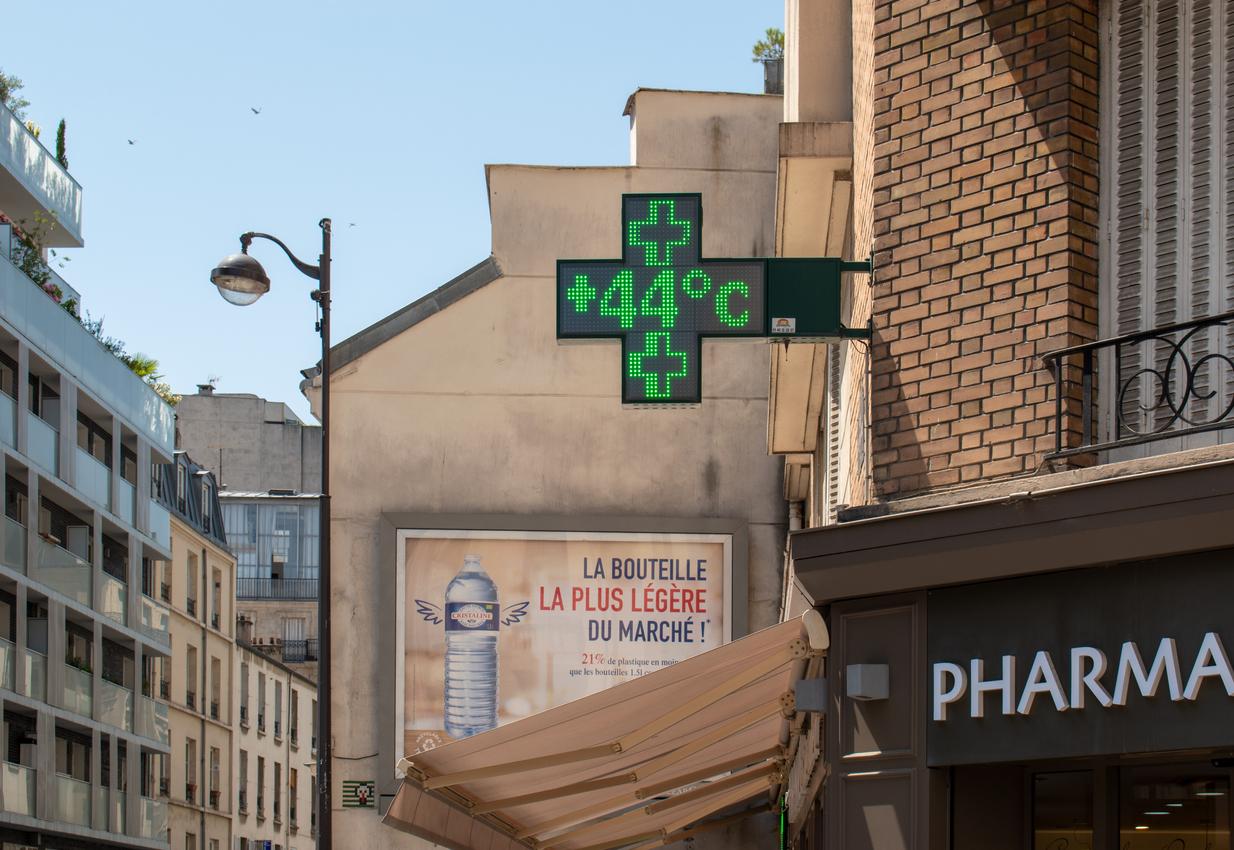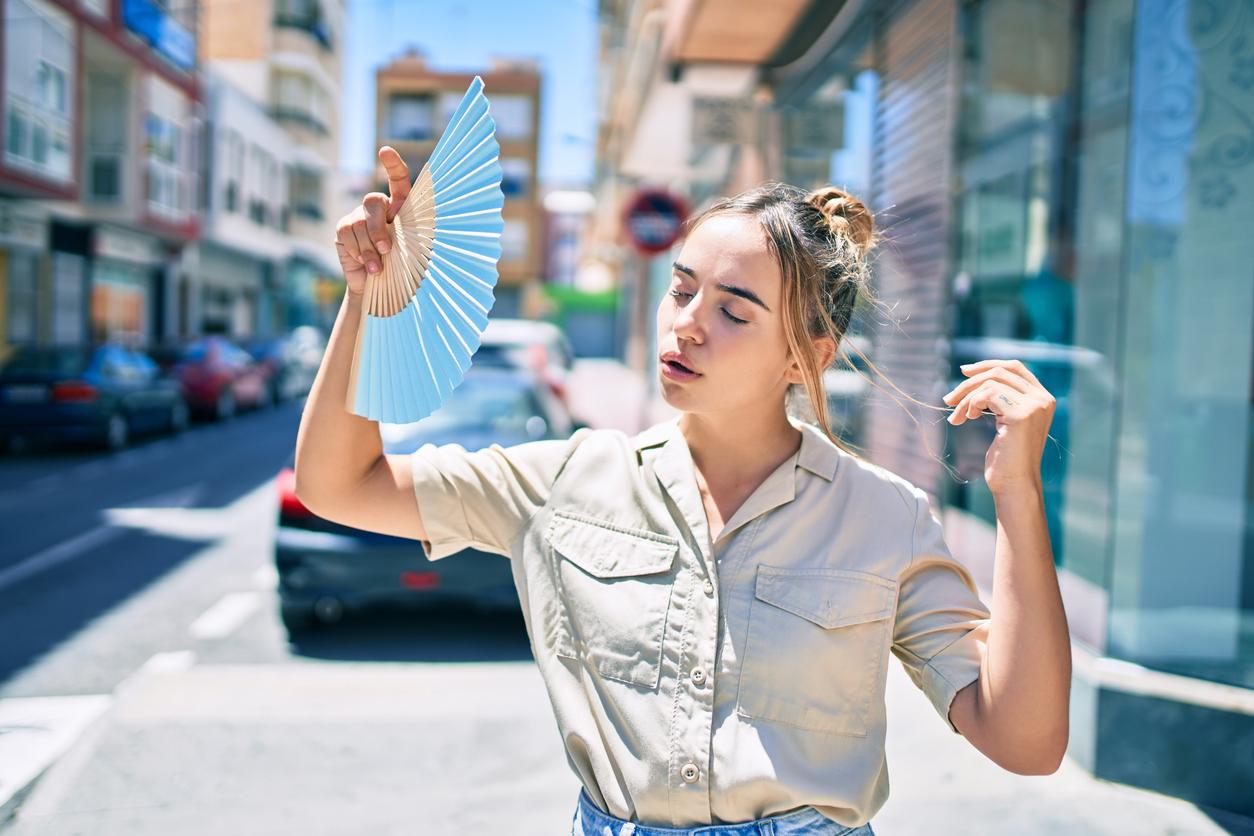Our body constantly regulates its temperature using several mechanisms that are controlled by the hypothalamus, this gland located at the base of the brain.
“When the outside temperature is above 32°C, these mechanisms are activated to maintain an ideal internal temperature, i.e. close to 37°C“explains Dr. Frédéric Le Guillou, pulmonologist and president of the French Respiratory Health Association.
In detail, the body can rely on 4 main mechanisms to deal with heat:
- Sweating: “sweating reduces body heat by about 30%” develops the specialist,
- Radiation: “the heat is naturally evacuated through electromagnetic waves: this reduces body temperature by approximately 40%“,
- Conduction : “when you put a cold object on your skin (a wet washcloth, for example), you transmit heat to it” notes the pulmonologist. However, conduction only allows 2% to 3% of the body’s heat to be evacuated,
- Convection: “the heat is also partially evacuated via the air or via the water, for example when one is near a fan“.
Yes, but here it is: when the outside temperature exceeds 35°C, these temperature adaptation mechanisms lose their effectiveness and must redouble their efforts to maintain the body at 37°C.
However, the majority of these temperature adaptation mechanisms cause water loss: “at the pulmonary level, for example, we will notice an increase in ventilation: the body will try to evacuate as much as possible the hot air loaded with CO2explains Dr. Frédéric Le Guillou. This phenomenon is accompanied by a greater emission of water vapour.“
Extreme heat: dehydration, the number 1 risk
The main risk in the event of high heat is therefore the dehydration : in the most extreme cases, the lack of water in the body can cause death. “The people most at risk are babies, the elderly and people who suffer from chronic diseases (especially respiratory or cardiovascular)“says the pulmonologist.
In addition, to promote the evacuation of heat, the body will order a vasodilation of the blood vessels located directly under the skin: “unfortunately, this phenomenon occurs to the detriment of other organs: digestive vasoconstriction will thus be observed, which can lead to nausea and vomiting aggravating dehydration“adds Dr. Frédéric Le Guillou.
Finally, in the most extreme cases (with temperatures exceeding 40°C), we can observe a thermolysis : “clearly, there is a direct attack by the heat of the centers of temperature regulation: the cells of the hypothalamus are then destroyed, and this can cause death“.
It is therefore indeed possible to “die of heat”: “in prevention, it is essential to drink a lot throughout the day without waiting to be thirsty (between 2 L and 3 L per day), to limit physical activity and to cool your environment as much as possible – for example at using a fan or air conditioner” recommends the specialist.
Thanks to Dr. Frédéric Le Guillou, pulmonologist and president of the association Respiratory health France.
Read also :
- Heat wave: 9 ways to cool your home without air conditioning
- Heat wave: how to protect yourself from the heat wave
- Heatwave: on Tiktok, she reveals a (really) effective tip for sleeping well despite the heat











